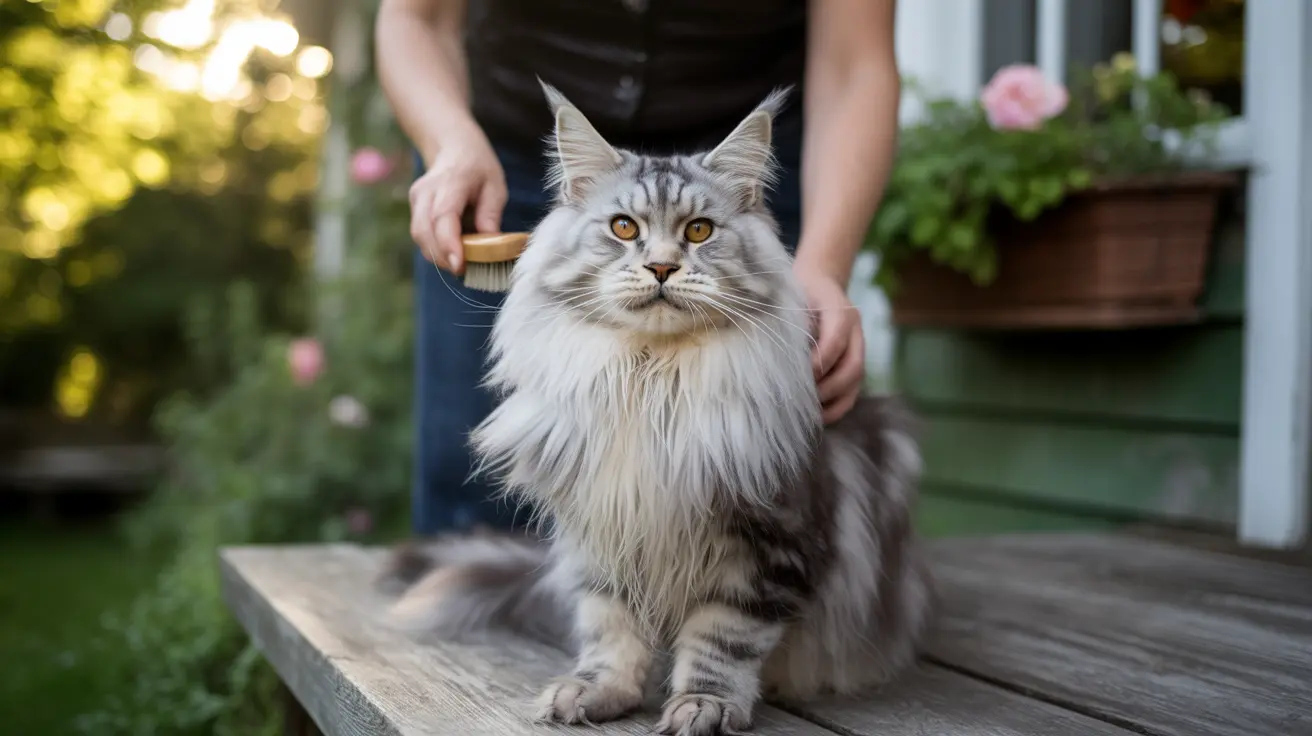If you're considering adding a majestic Maine Coon to your family but struggle with cat allergies, you're likely wondering if these gentle giants are hypoallergenic. As an expert in feline breeds and allergies, I'll help you understand the reality of Maine Coons and their potential impact on allergy sufferers.
Despite their unique coat characteristics and lovable personalities, Maine Coon cats are not hypoallergenic. However, understanding the science behind cat allergies and implementing proper management strategies can help determine if these beautiful cats might still be a possibility for your home.
Understanding Cat Allergies and the Hypoallergenic Myth
The term "hypoallergenic" is often misunderstood. While it suggests something is allergy-free, it actually means an item is less likely to cause allergic reactions. When it comes to cats, no breed is truly hypoallergenic because all cats produce the Fel d 1 protein - the primary allergen that triggers reactions in sensitive individuals.
Maine Coons, like all cats, produce this protein in their saliva, skin glands, and other secretions. When they groom themselves, they spread this protein throughout their coat, which then sheds into the environment through fur and dander.
Maine Coon Characteristics and Allergen Production
Maine Coons have several distinctive features that influence their allergen distribution:
- Their thick, long double coat can trap more dander and allergens
- They have larger sebaceous glands, which produce allergens
- Their grooming habits affect how allergens spread through their fur
- Their size means more surface area for allergen production
While their dense fur might trap more allergens close to their body (potentially reducing airborne particles), it also means more fur that can eventually shed and spread allergens throughout your home.
Managing Allergies with a Maine Coon
If you're determined to share your life with a Maine Coon despite having allergies, several strategies can help minimize reactions:
Regular Grooming
- Brush your Maine Coon outdoors daily
- Schedule professional grooming sessions
- Use pet-specific wipes to remove dander
- Consider monthly baths (with veterinary approval)
Environmental Controls
- Install HEPA air purifiers
- Vacuum frequently with a HEPA-filtered vacuum
- Keep your Maine Coon out of bedrooms
- Wash cat bedding weekly
- Clean surfaces regularly to remove allergen buildup
Personal Management
Work with your healthcare provider to develop an allergy management plan, which might include:
- Antihistamines
- Nasal sprays
- Immunotherapy options
- Regular hand washing after cat contact
Alternative Options for Allergy Sufferers
If you find that a Maine Coon's allergen levels are too high for your comfort, consider these alternatives:
- Siberian cats (naturally lower Fel d 1 levels)
- Balinese cats
- Russian Blue cats
- Sphynx cats (though still produce allergens)
- Bengal cats
Frequently Asked Questions
Are Maine Coon cats hypoallergenic or likely to cause allergies?
No, Maine Coon cats are not hypoallergenic. They produce the same allergens as other cats and can cause allergic reactions in sensitive individuals.
What causes allergic reactions to Maine Coon cats if they aren't hypoallergenic?
Allergic reactions are primarily caused by the Fel d 1 protein found in cat saliva, skin cells, and other secretions. When Maine Coons groom themselves, this protein spreads throughout their coat and environment.
Can people with mild cat allergies safely live with a Maine Coon cat?
Some people with mild allergies may successfully live with a Maine Coon by implementing strict allergen management strategies and working with healthcare providers on treatment plans.
What measures can reduce allergy symptoms for Maine Coon cat owners?
Regular grooming, HEPA air filtration, frequent cleaning, creating cat-free zones, and maintaining proper medical management can help reduce allergy symptoms.
Are female Maine Coons less allergenic than males for allergy sufferers?
Yes, female Maine Coons typically produce less Fel d 1 protein than males, potentially making them slightly less allergenic, though they still aren't considered hypoallergenic.
Before bringing a Maine Coon into your home, spend time with one to assess your allergic reaction, and always consult with both your allergist and a veterinarian to develop a comprehensive management plan.






